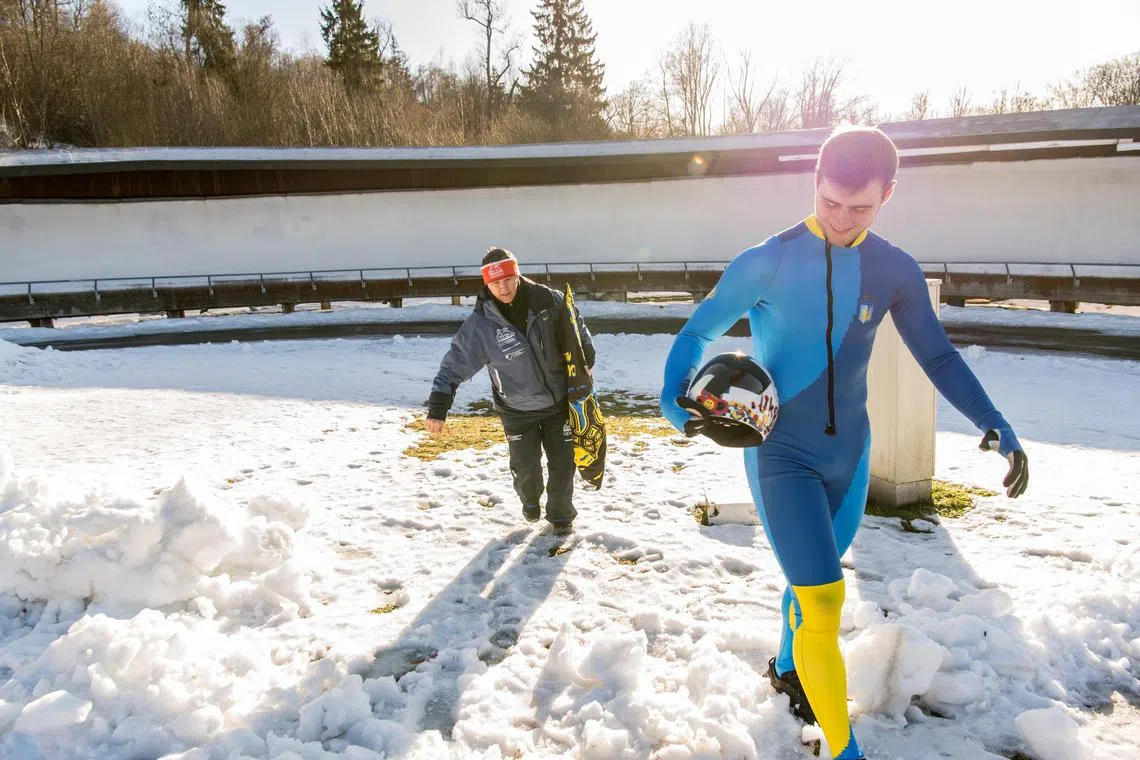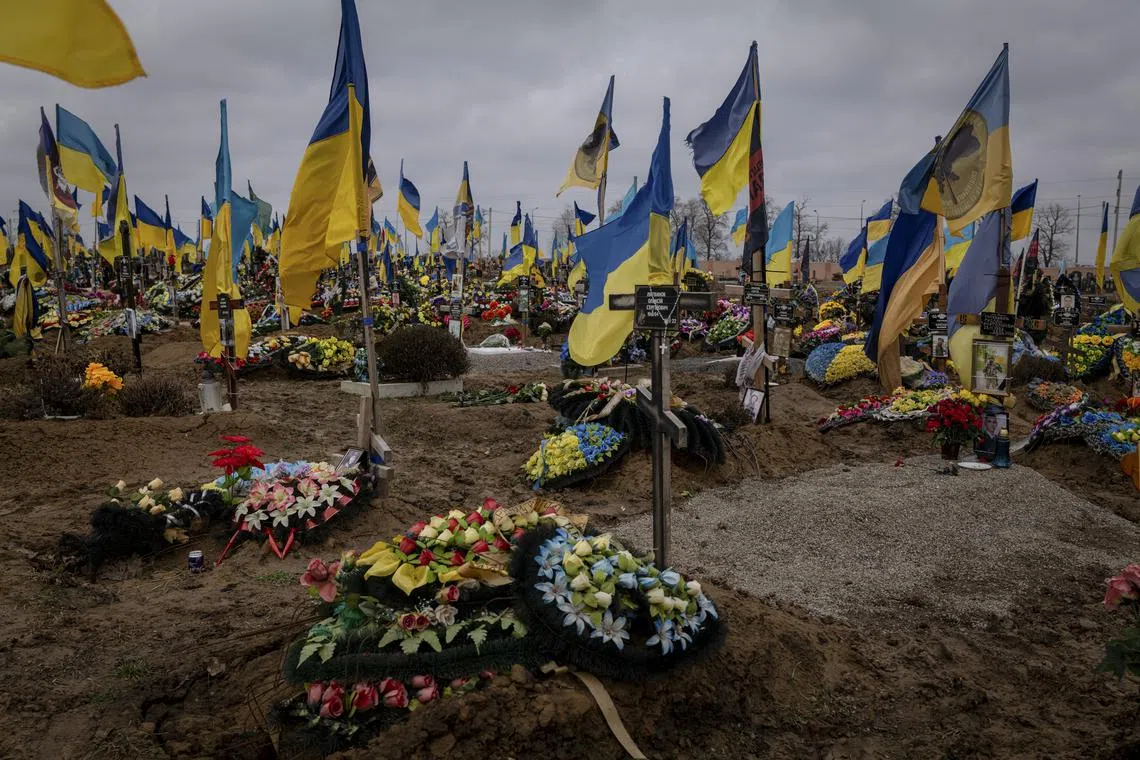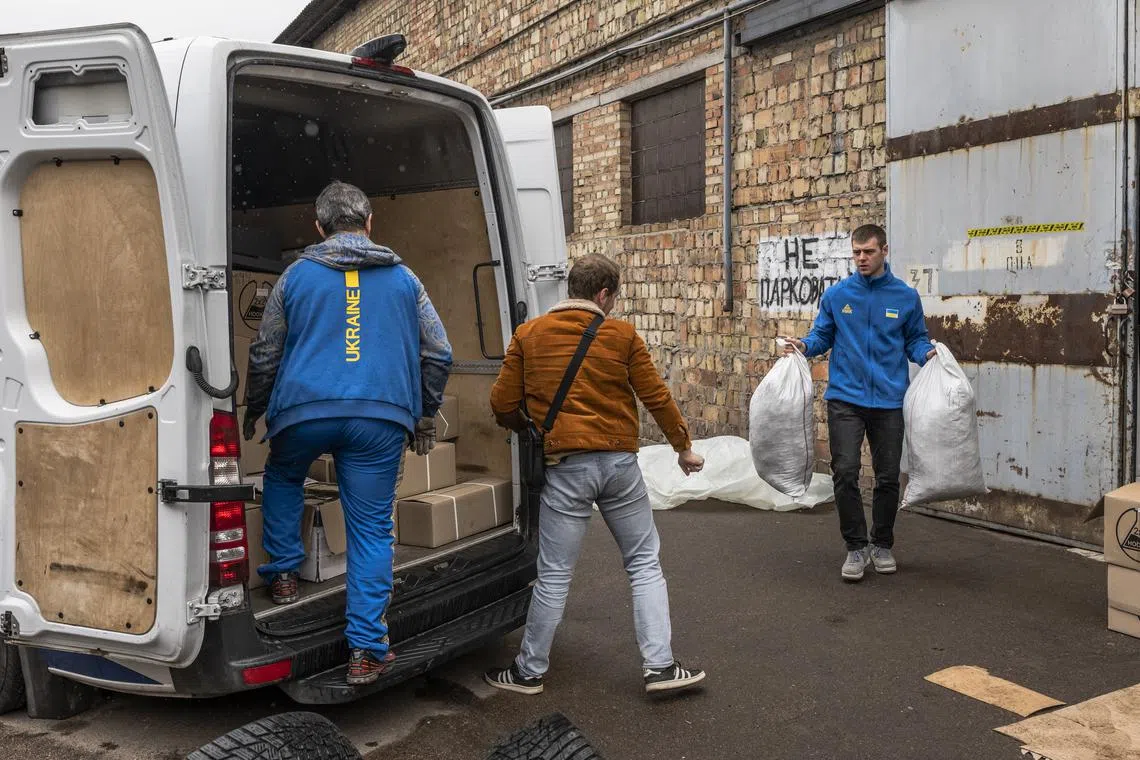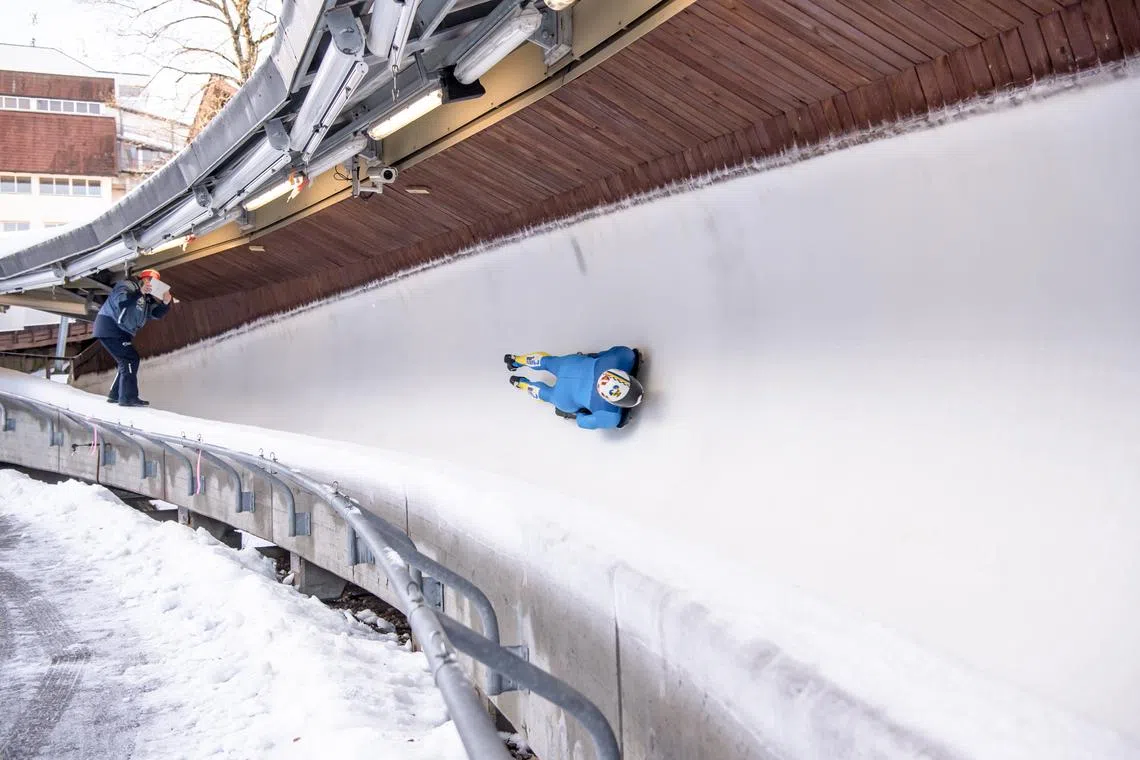Olympics: A Ukrainian racer’s Olympic fight brings pride but also guilt
Sign up now: Get the biggest sports news in your inbox

Ukrainian skeleton racer Vladyslav Heraskevych (right) with his father and head coach Mykhailo Geraskevych in Kyiv on Feb 14.
PHOTO: NYTIMES
NEW YORK – Vladyslav Heraskevych, who became Ukraine’s most famous Olympian because of the anti-war sign he held in front of a television camera at the 2022 Winter Games, days before Russia invaded his country,
They are especially powerful when the bad news from the front lines reaches him, as it did in January, when he learnt that his friend and teammate at the Youth Olympic Games, figure skater Dmytro Sharpar, died in combat near Bakhmut at the age of 25.
Days later, another top Ukrainian athlete, decathlon champion Volodymyr Androshchuk, also died in fighting. He was 22.
“It is very hard to understand how these people sacrificed their lives while you are doing sport,” Heraskevych said from Austria in February, after competing in a skeleton race on the World Cup circuit. He was in Latvia last week for the season’s final competition.
In any country enduring a war, especially Ukraine, where missiles rain indiscriminately across civilian areas and uncontested cities hundreds of miles from the battlefields, there is a never-ending tension between total dedication to the fight and the need for small slivers of normalcy.
Children still need to go to school. When air-raid sirens are quiet, adults try to salvage livelihoods and gather in cafes or pubs, even as their friends and relatives are sleeping in frozen trenches. On fields across the world, pro athletes play sports.
Like Heraskevych, many of them question why they are not fighting alongside their friends. While they try to hold the line in the Donbas region, he travels to Switzerland and Lake Placid, New York, to compete and to cities far from the front lines to run sports clinics for children. Government officials tell him to keep going, that without him, skeleton racing would not exist in Ukraine. Sometimes, he is not sure if they are right.
“They tell me that, like the president has said, I should keep doing it because sport is also Ukraine, that it would be bad if all we had was people fighting on the front lines,” he said. “We are also fighting to save culture and life.”
Unlike other sports figures from Ukraine, including retired tennis player Sergiy Stakhovsky, Heraskevych has yet to fire artillery or serve near the front lines. In February, Ukrainian President Volodymyr Zelensky told a meeting of sports ministers from allied countries that during the past year, 228 athletes and coaches have died.
Heraskevych knew many of them, although he has tried to serve the country in other ways.

Graves of Ukrainian service members killed since the start of the war in February 2022.
PHOTO: NYTIMES
In the first days of the war, he and his father converted the van that once carried their sleds into a mobile relief vehicle. Since then, he has started a foundation and worked closely with other organisations to supply medical aid and other forms of humanitarian relief, including food and clothing.
His organisation, the Heraskevych Charity Foundation, worked to secure six tons of supplies from Portugal in 2022 and has coordinated with Little Wing Relief Works in the United States to secure additional supplies.
His efforts have helped bring six medical tents and generators that serve as mobile medical units near combat zones, where medics perform triage on injured soldiers before they are transported to hospitals.

Vladyslav Heraskevych (right) has tried to figure out how he can best serve his country.
PHOTO: NYTIMES
Heraskevych is also among the leading voices in Ukraine’s efforts to keep Russia and Belarus out of international sports,
He worries little about doomsday predictions of the collapse of international sports if athletes are punished for the policies of their governments, pointing to the years after World War II, when athletes from Germany and Japan were prohibited from competing in the 1948 Olympic Games.
“Nobody questioned it,” he said. “Now they say athletes are not guilty, that they are victims of the system.”

Vladyslav Heraskevych is among the leading voices in Ukraine’s efforts to keep Russia and Belarus out of international sports.
PHOTO: NYTIMES
Heraskevych, other Ukrainian athletes and sports officials, and representatives from other countries have gone on the offensive in recent weeks after Thomas Bach, president of the International Olympic Committee, said officials were working to find a way for Russian and Belarusian athletes to compete at the 2024 Paris Games as neutrals.
Olympic officials also said only those who had not actively supported the war will be allowed to participate, which Heraskevych felt was absurd.
“How can we check on any of this? You are going to have athletes who have been trying to kill Ukrainian civilians competing,” he said. NYTIMES


